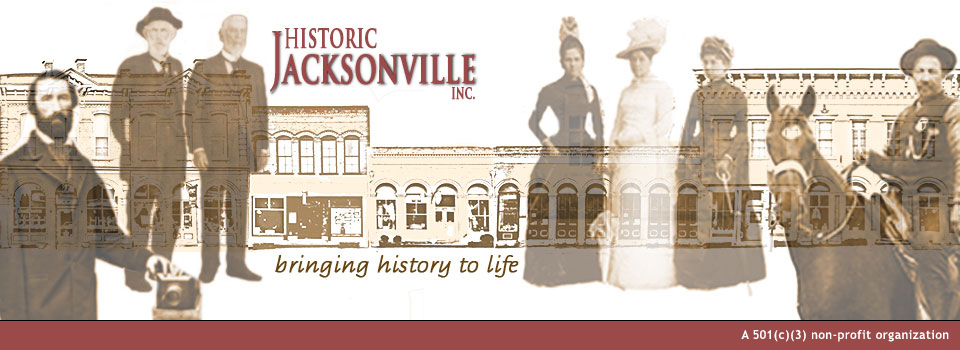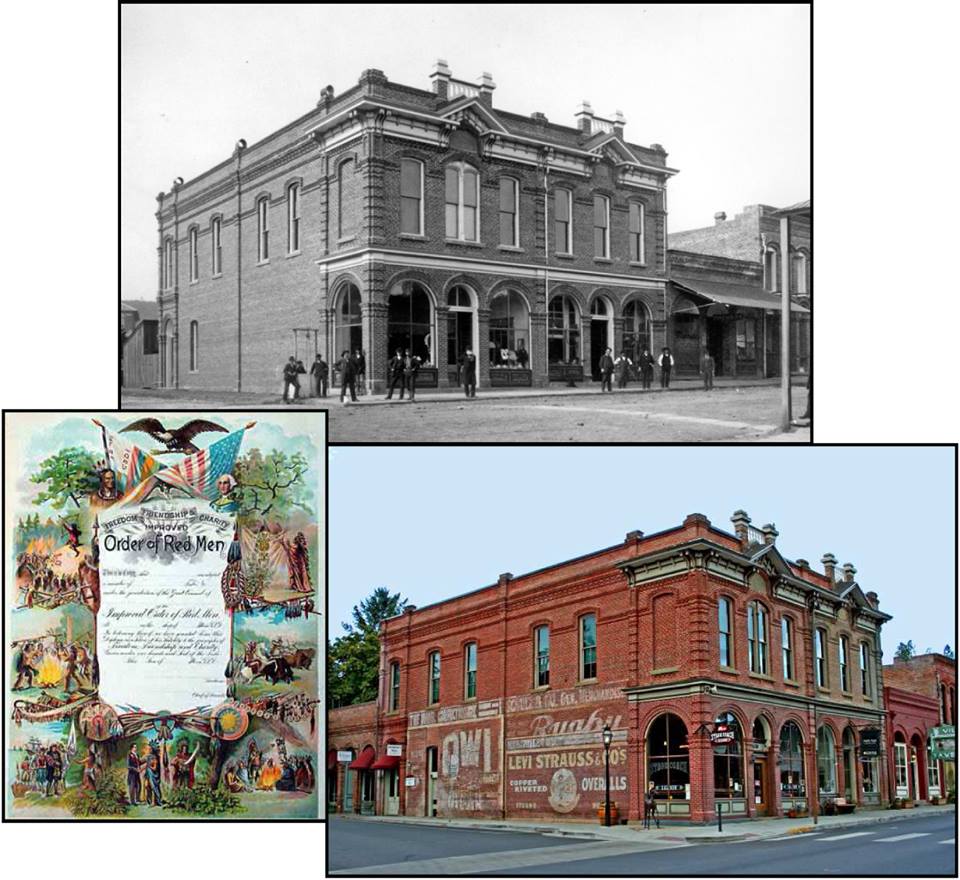
The Improved Order of Red Men was a popular fraternal society claiming descent from the instigators of the Boston Tea Party. Jacksonville boasted three tribes—the English-speaking Pocahontas Tribe No. 1, the German-speaking Stamm No. 148, and the Haymakers Association. In 1884, the societies jointly contracted with brick mason George Holt for the construction of Red Men’s Hall at the southwest corner of California and 3rd streets on the site of the former New State Billiard and Drinking Saloon. Sadly, the Red Men were unable to pay off their construction debt and relinquished title in 1891.
Independent Order of Odd Fellows
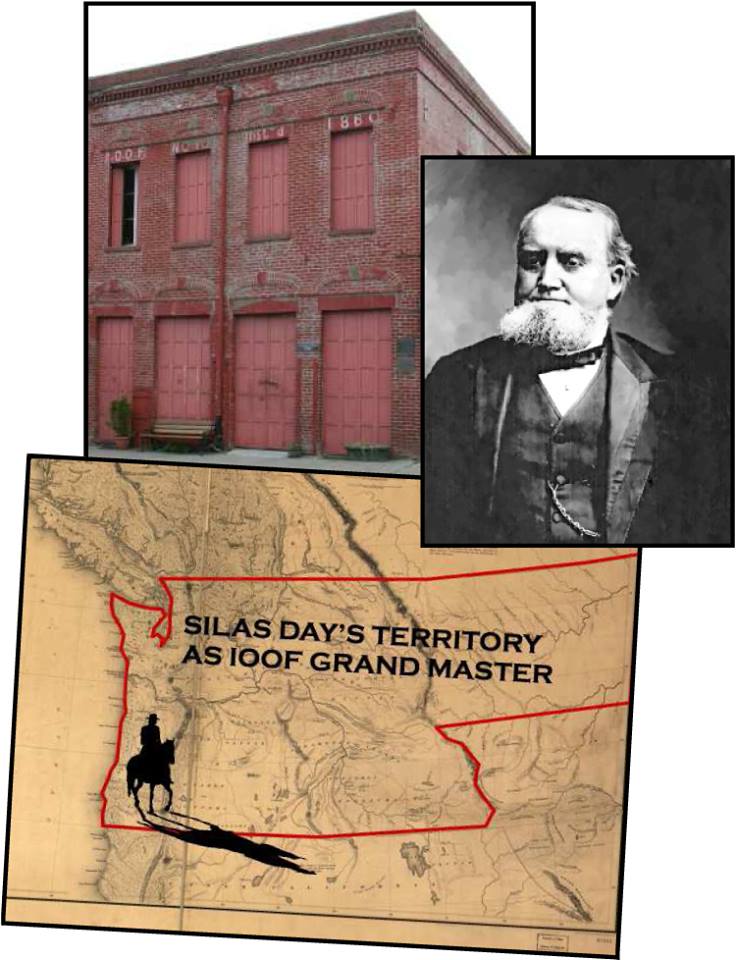
In 1856, Scottish doctor John McCully constructed the first 2-story brick building in Jacksonville. In 1861, the building was leased to Jacksonville’s Lodge No. 10 of the Independent Order of Odd Fellows; they subsequently purchased it in 1865. Beginning with 15 members in 1860, the Lodge quickly attracted many prominent local residents. One such member was Judge Silas Day. In 1868 he became Grand Master of the Order’s Oregon, Washington, Idaho, and Montana chapters. If he wanted to visit them all, it required a year and three days on horseback.
Masonic Hall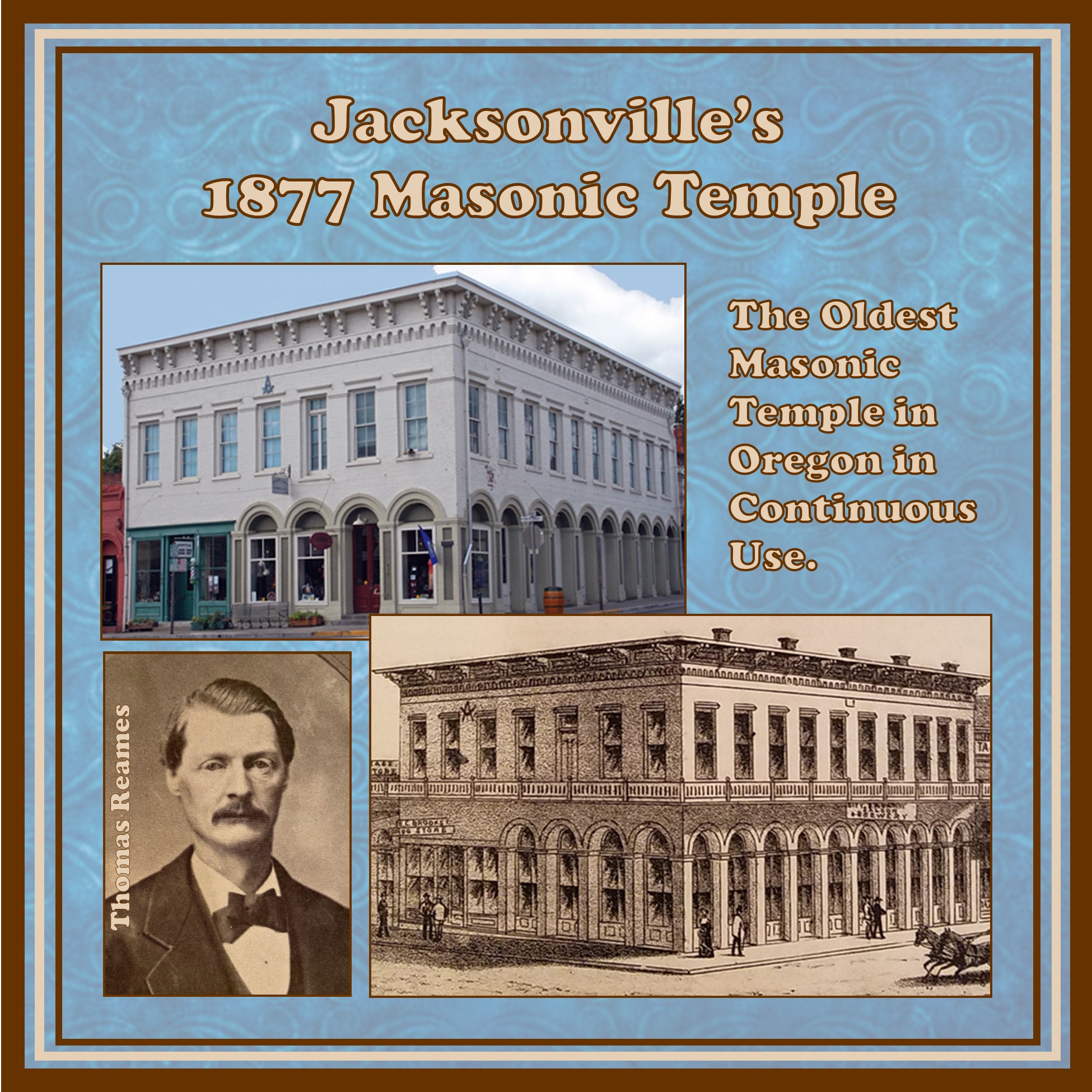
Jacksonville’s Warren Lodge No. 10 of the Ancient Free & Accepted Masons, founded in 1855, was the first Masonic order south of Salem to construct a meeting hall. The original 1858 lodge building stood on the block now occupied by new City Hall (the historic County Courthouse). The current Masonic temple at the corner of California and Oregon streets was constructed between 1874 and 1877 by brick mason George Holt. Carpenter and builder David Linn added a “neat and substantial balcony.” When it was completed in 1877, it was described as “one of the finest buildings in Southern Oregon.” It remains the oldest temple structure in Oregon in continuous use as a Masonic meeting hall.
Following a visit to Jacksonville in 1877, J.W. Bird, editor of the “Yreka Union,” wrote, “There are several fine brick buildings, especially the one recently erected by the Masonic fraternity at a cost of $12,000. It is two-story, and besides a very fine lodge room has a large club room also in the second story. The first floor is readily rented for business purposes.”
At the time of construction, the Worshipful Master presiding over the Warren Lodge was Thomas Reames. Reames is credited with the concept of including retail space on the first floor of the Lodge which enabled the Lodge to operate from income received from the rentals. In the 1880s, a “City Brewery,” “Saloon,” and “Bakery” occupied the ground floor. In the early 1890s, the post office and a cigar store were located on the first floor and later a “furniture warehouse.” Today the ground level is home to La Boheme, the Jacksonville Barber Shop, and Jefferson Farm Kitchen.
Odd Fellows Hall/McCully Building
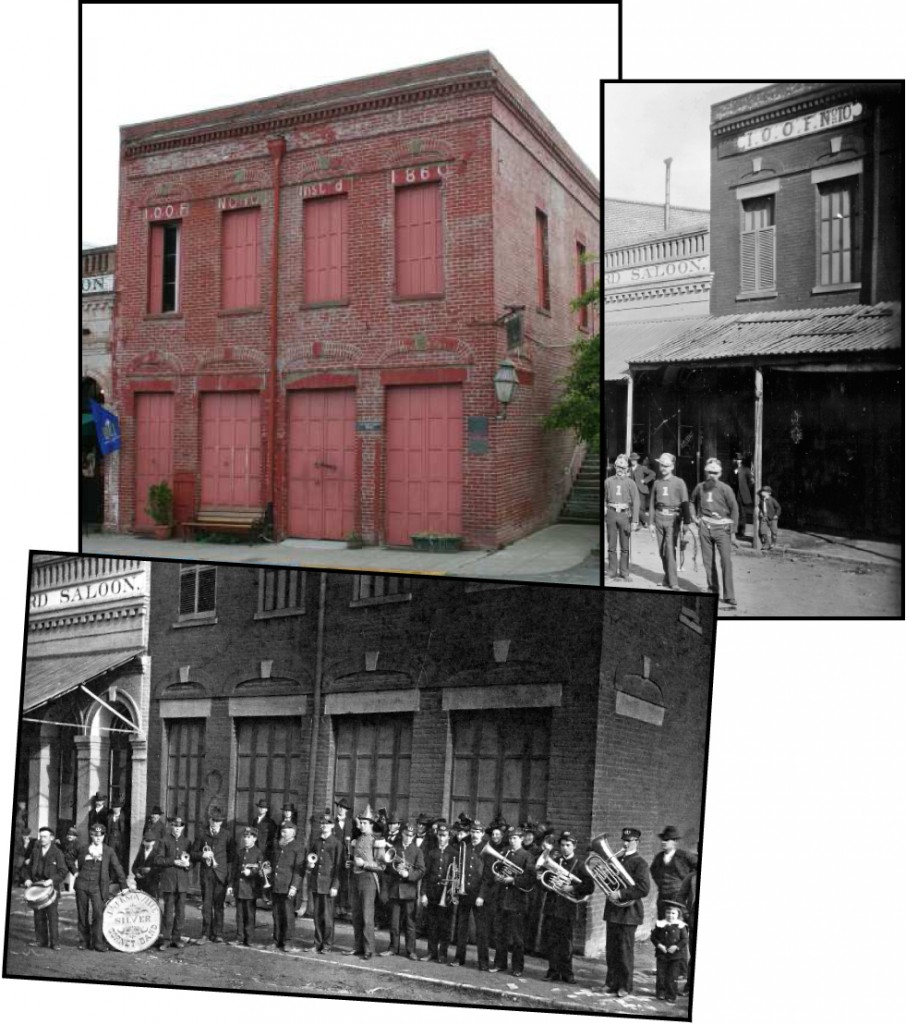
In 1856 Dr. John McCully constructed the first 2-story building in Jacksonville at the corner of Main and Oregon streets, the most expensive structure in town. Its brick construction enhanced by heavy iron shutters over all windows and doors made the building “fire proof.” The first floor housed a series of shops; the second floor was home to McCully’s Theatre and the local Jewish synagogue. The IOOF acquired ownership after McCully’s real estate speculation left him deeply in debt. The building was dedicated as Jacksonville’s Odd Fellows Hall in 1867.
P. P. Prim Cabin

The innocuous one-story home at 110 West C Street hides a wealth of history. The current house was built as a rental property in the 1930s. However, the site was originally part of the adjacent Combest property. In the 1870s, it became the location of the Democratic Times newspaper. When that paper merged with the Southern Oregonian in the early 1900s, the site became the meeting hall of the Native Sons of Oregon. The Native Sons of Oregon was founded in the late 1800s, the first “historical society” in the state. Each chapter was called a “cabin” and each “cabin” was named after a prominent local historical figure. The Jacksonville Cabin honored Paine Page Prim, an early Jacksonville lawyer who became Chief Justice of the Oregon Supreme Court.
Redmen’s Hall
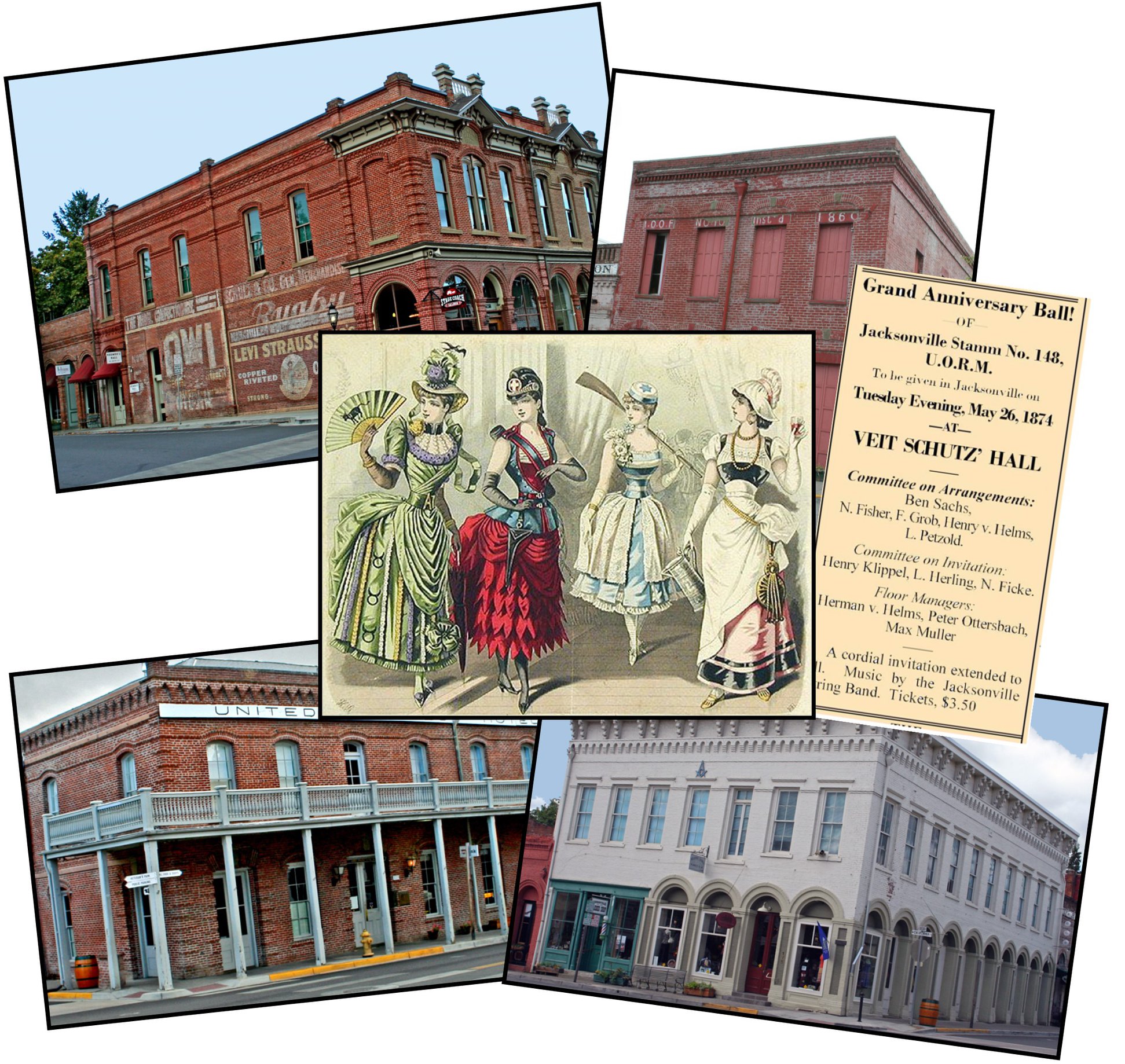
Warren Lodge No. 10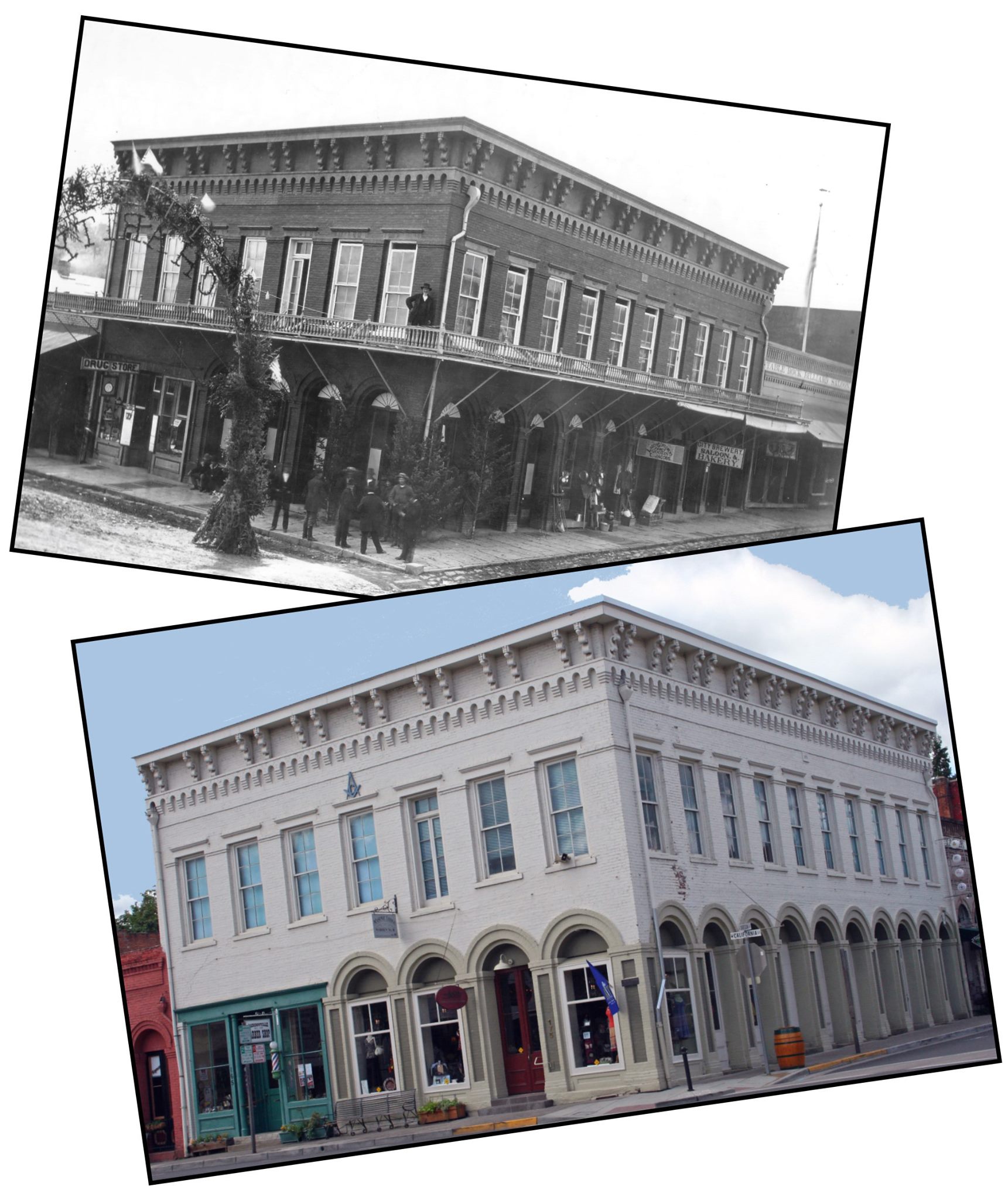
May 21, 2019
Jacksonville’s Warren Lodge No. 10 of the Ancient Free & Accepted Masons, founded in 1855, was the first Masonic order south of Salem to construct a meeting hall. The original 1858 lodge building stood on the block now occupied by new City Hall (the historic County Courthouse), and for a number of years leased space to Jackson County for offices and courtroom before selling them the building. The current Masonic temple at the corner of California and Oregon streets was constructed between 1874 and 1877 by brick mason, George Holt. Completed in 1877, it’s the oldest temple structure in Oregon in continuous use as a Masonic meeting hall. The lodge had acquired the property after an 1874 fire at that corner destroyed the “almost unimaginable conglomeration of frame shops, sheds, and outbuildings”— “many of the ancient landmarks” of early Jacksonville—including the notorious El Dorado Saloon. The saloon had stood on that corner from as early as spring of 1852, attracting “gamblers, courtesans, sharpers of every kind, the class that struck prosperous mining camps like a blight.” [We should note that even after the El Dorado was destroyed, there were plenty of other saloons remaining!]
